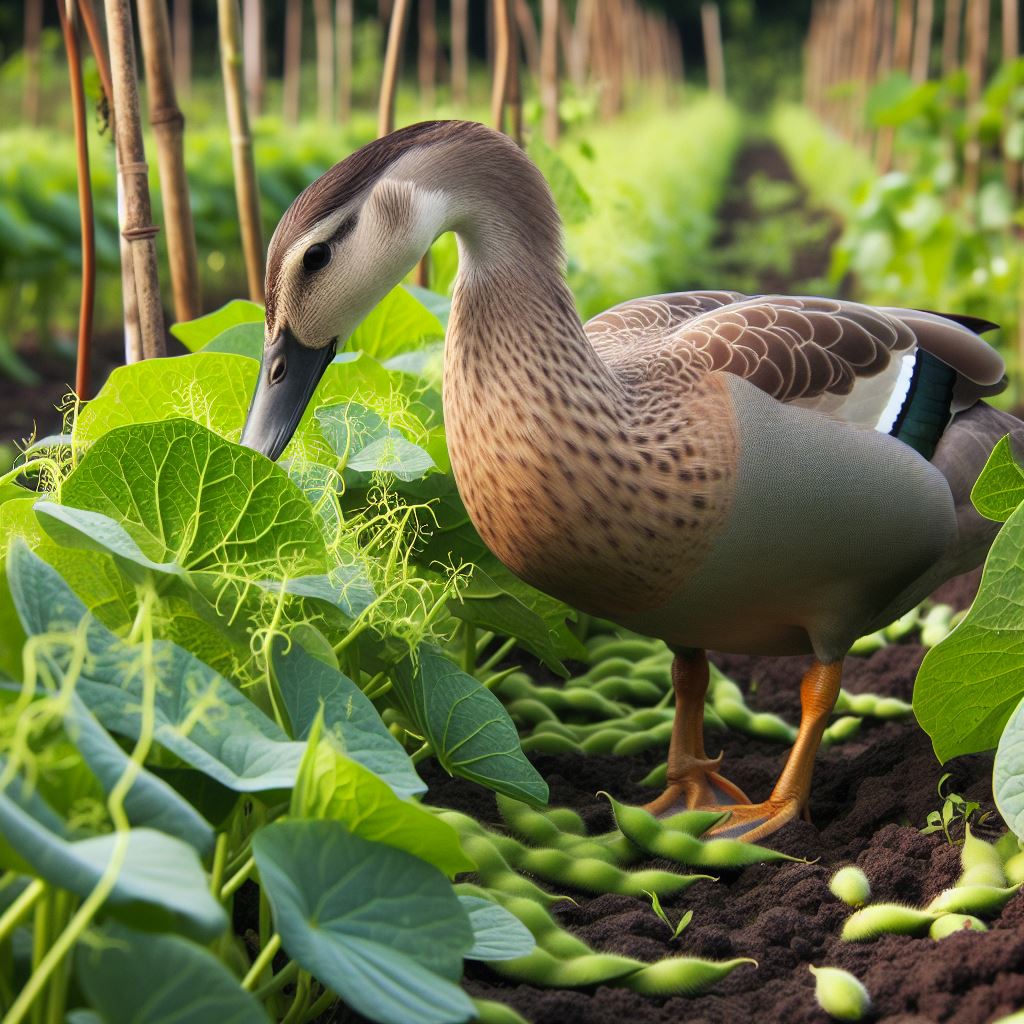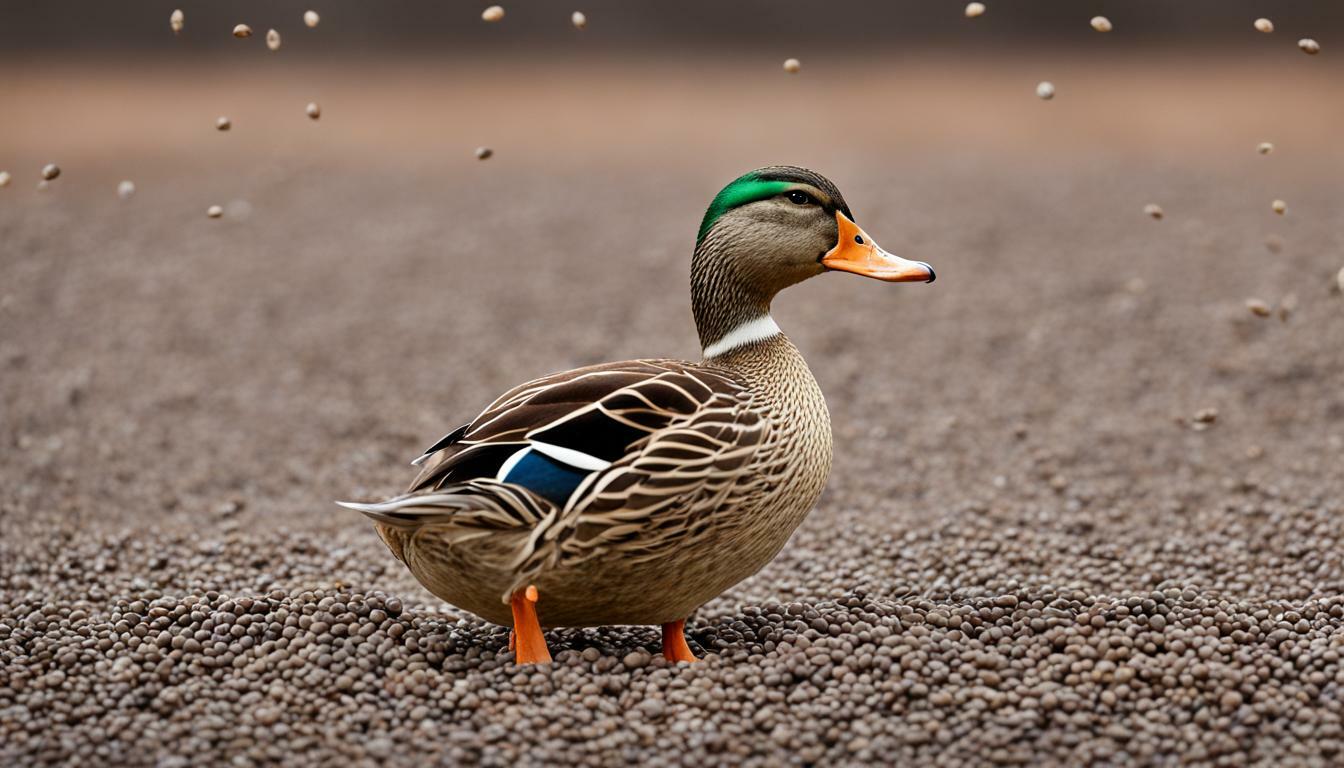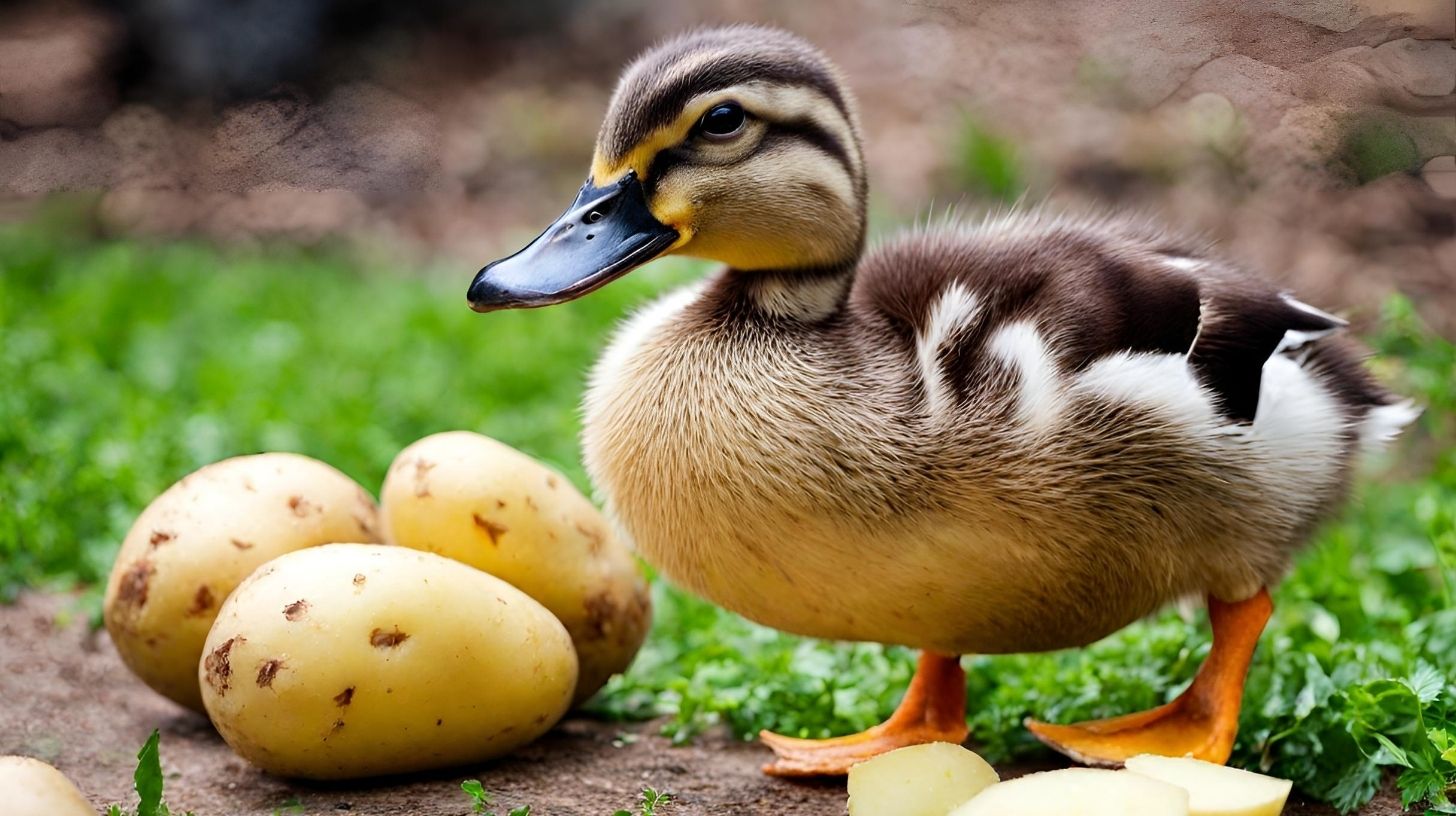Can Ducks Eat Edamame? The Answer May Surprise You!

Table of content:
- An Overview of Ducks and Their Diets
- Can Ducks Eat Edamame?
- Nutritional Value of Edamame for Ducks
- Are There Any Risks for Ducks That Eat Edamame?
- Proper Dosing When Feeding Ducks Edamame
- Feeding Methods and Enrichment Ideas
- Frequently Asked Questions About Ducks and Edamame
- The Verdict: Edamame as an Occasional Duck Treat
Edamame, the popular green soybean snack, has become a staple at gatherings and on vegetable trays across the country. Their pleasant, mild flavor and satisfying crunch make them hard to resist. If you happen to have a resident flock of ducks waddling around your yard or farm, you may have wondered – can ducks eat edamame?
As it turns out, edamame can make a nutritious snack or supplemental feed for domestic ducks. However, there are some important factors to consider before tossing handfuls of soybeans out for your fine, feathered friends.
An Overview of Ducks and Their Diets
Before looking specifically at questions around edamame, it helps to level-set some background on ducks. There are many types of domestic ducks, with popular breeds like the small, friendly Call Duck, the prolific egg-laying Indian Runner, and the dual-purpose Pekin and Muscovy ducks. Mallard ducks, though wild rather than domesticated, also frequently inhabit parks and ponds.
Duck behavior varies by breed, but most enjoy grazing, foraging for bugs and vegetation near the water’s edge, and dabbling in mud or shallow water to find food. Their natural diet consists of:
- Aquatic plants and grasses
- Seeds, grains from land plants
- Insects, small fish, and amphibians
Domestic ducks have similar nutritional needs to wild ducks. They forage when allowed to roam freely outdoors and should have a balanced duck feed available at all times. Most duck feeds are grain-based, consisting of:
- Corn
- Wheat
- Barley
- Oats
Many feeds also contain supplemental protein, vitamins, and minerals. Always supply fresh, clean water as well for hydration and washing food particles from eyes and nostrils.
Can Ducks Eat Edamame?
So – the big question is – are edamame safe for ducks to eat? The answer is yes, ducks can safely eat both shelled and unshelled edamame as part of a balanced diet.
Edamame is the same species of soybean that is commonly pressed into oil or ground into livestock meal. Soybeans for edamame are simply harvested sooner, while the beans are still soft and green.
As young soybean pods, edamame has a very mild bean-like taste and tender texture when steamed or boiled. This makes it appealing as a finger food snack for humans. Fortunately, enjoyable for ducks to pick at as well!
Some key advantages of edamame for ducks:
- Nutritious and digestible
- Provides protein, amino acids, vitamin K, iron
- Compatible flavor and texture
- Fun to forage and play with
The main limitation is edamame should not make up the mainstay of any duck’s diet. As with most bean and grain crops, edamame has limiting amino acids and anti-nutritional compounds. We’ll explore proper dosing next.
Nutritional Value of Edamame for Ducks
Fluffy and adorable as they are, ducks have complex dietary nutrition needs to stay healthy. Understanding exactly what nutrients edamame provides helps guide proper supplemental feeding.
Here is the nutritional profile of shelled, boiled mature soybeans:
| Nutrient | % Daily Value* |
|---|---|
| Protein | 29g |
| Fat | 14g |
| Carbohydrates | 9g |
| Fiber | 9g |
| Vitamin K | 38% |
| Iron | 22% |
| Thiamine | 15% |
| Riboflavin | 11% |
* Based on duck nutritional requirements established by the National Research Council
Key macronutrients for ducks provided in edamame are:
- Protein – For growth and development of muscles, organs, and feathers
- Fat – Concentrated energy source
- Fiber – For digestion and waste elimination
It also contains generous amounts of key micronutrients:
- Vitamin K – Essential for blood clotting
- Iron – Oxygen transport in blood
- B Vitamins – Metabolism of carbs, fats, and protein
Beyond the nutritional numbers, a key advantage of plants like edamame is they mimic some of the natural foraging ducks would do in the wild. Allowing ducks to nibble greens and peck at pods satisfies their behavioral need to graze and explore. This is enriching for domestic ducks even when a commercial feed meets all dietary needs.
Are There Any Risks for Ducks That Eat Edamame?
While edamame can provide useful nutrition and enrichment, there are some important cautions around overfeeding.
Soybean crops like edamame contain:
- Trypsin inhibitors – Interferes with protein digestion
- Phytates – Reduces mineral absorption
- Oligosaccharides – Causes unpleasant intestinal gas!
These anti-nutritional compounds can cause problems when consumed in excess. Additionally, raw soybeans contain toxins that can cause severe digestive upset.
Fortunately, common cooking methods like boiling, steaming, roasting, and drying neutralize these. Cooked edamame or soybean products like meal contain negligible amounts of anti-nutrients or toxins. Still, moderation is advised.
There is also some lingering controversy around soy and thyroid function. However, moderate soy consumption seems to pose little to no risk for duck thyroid issues.
Finally, as with any treat or table food, edamame should not replace nutritionally balanced duck feed. It can supplement and add diversity to the diet, but cannot meet all essential amino acids, fatty acids, vitamins and minerals. Feeding edamame alone would lead to malnutrition.
Proper Dosing When Feeding Ducks Edamame
When adding edamame to a duck’s diet, follow these safety tips:
- Cook thoroughly – This eliminates anti-nutrients and makes beans easier to chew
- Chop/Mash – For younger ducks or breeds with small beaks
- Limit to 5-10% of daily intake – No more than 1 oz per 5 lb average body weight
- Provide free-choice balanced feed – To meet all nutritional requirements
With proper dosing, edamame is a safe, nutritious, and fun supplemental feed for ducks!
Feeding Methods and Enrichment Ideas
Edamame’s natural form in the pod mimics the graze-and-peck behavior ducks would display gathering wild vegetation near shore. Some feeding method suggestions:
Spread Pods in an Outdoor Enclosure
Scatter dried, cooked edamame pods in an outdoor run or penned area to encourage natural foraging behavior. Be sure no moldy vegetation or other toxin sources are accessible. Provide fresh water for drinking and face washing.
Add Shelled Beans to Feed
Mix some chopped, cooked edamame pieces directly into the balanced duck feed. The green beans will add a pop of color and texture contrast with grain feed components.
Hang a “Treat Wreath”
String up a ring of edamame pods like a wreath for ducks to grab and tear apart. The challenge and motor skills involved make this a fun, interactive feeder toy. Rotate in new wreaths to keep boredom at bay.
These methods allow ducks to act out their instinctive foraging and exploration behaviors. The same nutrients and roughage can be provided from commercial feeds, but the whimsy and activity edamame encourages are beneficial as well. This stimulates ducks mentally and physically for better wellness.
Frequently Asked Questions About Ducks and Edamame
Here are answers to some common questions about feeding edamame and soy products to pet, recreational, or farm ducks:
Can ducklings eat edamame?
Edamame can be introduced once ducklings are fully feathered (around 5-6 weeks old) and able to digest solid feed. Cook pods thoroughly and dice/mash beans for easier eating.
Do wild ducks eat soybeans?
Wild ducks will gladly graze on soybean plants in fields near wetlands. The natural soybean has a bitterness ducks tolerate more willingly than humans. High protein soybean seed heads and vegetation provide excellent wild duck nutrition.
Is it safe to feed ducks soybean meal?
Yes, soybean meal is a common component of commercial duck feeds. As with edamame, it must be properly processed and heat-treated first. Feed quality soybean meal only, not raw unprocessed beans or plant material.
What about feeding ducks whole soybeans?
Whole raw soybeans contain dangerous toxins and anti-nutritional factors that can poison ducks. However, cooked whole soybeans are safe in moderation 5-15% maximum by weight.
Can too much soy affect duck egg quality?
Excess soy can cause inconsistent yolk firmness and color. It may also lower fertility rates if breeding ducks eat it excessively. But eggs from ducks fed normal levels of soy products like edamame or soybean meal are perfectly safe and nutritious to eat.
The Verdict: Edamame as an Occasional Duck Treat
In conclusion, yes – fresh, properly prepared edamame makes a safe, nutritious supplementary food for ducks. Its protein, vitamins, natural forage qualities, and fun popping texture provide benefits beyond basic complete feed formulas.
Take care to cook pods fully to remove toxins and anti-nutrients, limit intake to less than 10% of diet, and pair with free-choice complete feed. Monitor duck health and egg quality for any issues if substituting other treats for edamame instead.
So whip up a batch of boiled soybeans and share a handful with your feathered pals next chance you get.
Welcome. I’m Adreena Shanum, the proud owner of this website, and I am incredibly passionate about animals, especially poultry. I founded adreenapets.com as a labor of love, stemming from my desire to share my knowledge and experiences with poultry enthusiasts worldwide.



